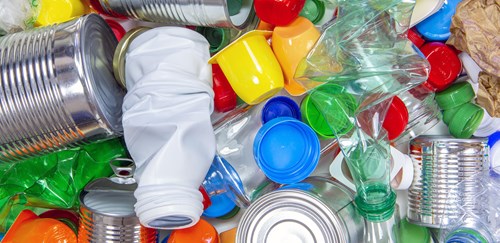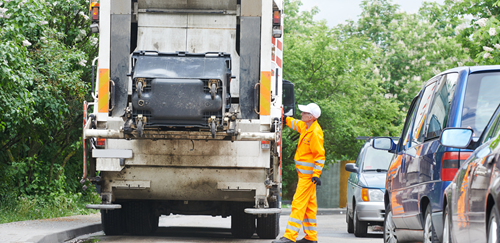After much delay, government have published their response to the second round of consultations on reforming the packaging producer responsibility system that closed last June.
The consultation responses were originally planned to be released late last year but for various reasons had to be put on hold. The first set of consultations was released just over two years ago, in line with commitments made in the Resources and Waste Strategy.
Industry have been eagerly awaiting the government response, as clarity surrounding how the system will move from the current framework of producer obligation – also known as the ‘PRN model’ – to one of Extended Producer Responsibility (EPR) is crucial for preparations, despite announcements that the system will be delayed by a year to 2024.
EPR sits alongside two other keystone policy proposals under the packaging reforms – a Deposit Return Scheme (DRS), and consistent recycling collections – detailed government responses to which are yet to be released.
Below is a summary of the key decisions taken by government on packaging EPR and information about a new consultation they have also released:
Key government decisions on packaging EPR:
Overall system costs have been reduced to £1.7 billion from £2.7 billion. This is because Defra have dropped plans for producer payments for business waste collections, to ‘simplify and de-risk delivery’. This is likely due to concerns about cost of living, and the complexity and contentiousness of the system when it was first suggested. Instead, an ‘interim system’ largely based on the PRN model will be introduced for packaging not arising from households.
Importers and brand-owners are confirmed as the two key points of compliance. Other categories of producer will pick up various other obligations.
The PRN market will continue until 2026/2027. This will provide evidence of recycling for packaging arising from both households and commercial premises. However, in 2024 producers will have to start reporting whether packaging is ‘likely’ to end up in households and depending on the proportion of this will start making additional payments to the scheme administrator for local authority collections. This will eventually result in the final modulated fee system in 2025. In 2024 there will also be a shift in the PRN system from the current shared obligation model to the single points of compliance at the brand-owner or importer.
The current small producer threshold, or ‘de minimis’, for obligations to pay waste management costs will remain at £2m turnover and 50 tonnes of packaging handled each year. However, a secondary reporting threshold will be introduced for businesses that handle more than 25 tonnes of packaging, with a turnover of more than £1m. Businesses operating between these two thresholds will have reporting requirements, but no payment obligations.
Producers will have to prepare for a more detailed reporting system from January 2023. This will include supplying data on specific packaging component materials, which waste stream their packaging is likely to appear in, and the use of any ‘recycling disruptors’ such as metal components.
Modulated fees, based on recyclability, will begin in full in 2025. This will come after producer packaging recyclability assessments are initially introduced in October 2024.
A single mandatory labelling scheme will be legislated for. The mandatory labelling system will follow OPRL/WRAP’s recycle mark, and will be obligatory by 31 March 2026. All compostable or bio-based packaging will have to be labelled ‘do not recycle’ until better evidence is available.
Recyclable plastic film and flexible packaging is to be collected for recycling from both households and businesses across the UK by 31 March 2027. Films and flexibles will be exempt from new labelling requirements until 2027, when collections and recycling precedence will hopefully be consistent and proven.
England and Northern Ireland will not introduce mandatory producer litter payments. This is another reason why previously expected costs were high – but Wales and Scotland will form their own plans.
A Scheme Administrator will be established from 2023 to oversee packaging EPR. They will be formed from the public sector as an arms-length government organisation, however, there will still be “opportunities for the private sector to deliver some of its functions”.
Compliance schemes will remain operational as they currently are until the end of 2024. After this date they will undergo a more rigorous approval process.
The full government EPR consultation response can be downloaded here.
Indicative EPR timeline
2022 – An EPR statutory instrument for data reporting is laid down by Defra and passed, ahead of new reporting requirements in 2023.
2023 – The EPR statutory instrument is passed and producers report their packaging data under the new requirements. The scheme administrator begins preparatory work.
2024 – Local Authorities will begin to receive funds for collecting and treating packaging waste, based at first on general material categories. By this point, the scheme administrator is fully operational and the modified PRN system begins. Small producers between the two thresholds will begin reporting. Recyclability assessments for modulated fees become necessary.
2025 – Modulated fees become fully operational. Compliance schemes become re-approved, dependant on EPR criteria.
2026 – Likely the last year of the tweaked PRN system. Mandatory labelling is introduced for packaging with the exception of films and flexibles.
2027 – Films and flexibles will have to be collected by local authorities and will be obligated under the labelling system.
Key DRS announcements
The EPR consultation summary also includes announcements on the DRS, a form of EPR that will accompany the main reforms.
England and Northern Ireland have taken the decision not to include glass in the scope of single-use containers that will be obligated. Wales will continue to include glass however.
The size of in-scope containers will follow the ‘all in’ model. This means drinks packaging from 50ml up to 3l will be obligated under the new DRS system when it is implemented.
New PRN consultation
A new consultation has also been published alongside the responses to the EPR consultation, that asks stakeholders what reforms to the PRN system should look like during and after the transition to EPR.
The consultation focuses on a number of key areas, including:
Reporting requirements on the sales of PRNs/PERNs
Reporting requirements on how the revenue from PRN/PERN sales is used
Timeframes for the trading of PRNs/PERNs
The introduction of a ‘technical competence’ test for compliance scheme operators and accredited reprocessors/exporters
The interface with the introduction of a Deposit Return System (DRS)
The introduction of a compliance fee for producers that fail to meet their obligations
The PRN consultation can be found here.
A pragmatic approach to improve the packaging recycling system
Robbie Staniforth, Innovation and Policy Director, says of the response "The summary shows that UK Governments have taken a pragmatic approach to improve the packaging recycling system in the UK. The incentive to recycle for packaging reprocessors has been retained for the immediate future ensuring that producers of packaging can have a direct impact on recycling."
"We hope that the modifications to the PRN system outlined in the accompanying consultation will drastically improve the current system and lead to higher recycling rates in the UK."
Free essential training webinars
Innovation and Policy Director Robbie Staniforth and Policy Advisor Louisa Goodfellow will present a free webinar at 1.30pm on 11 April to provide an overview of the official EPR consultation response by government. They will explain how producers will be impacted and there will be an opportunity to ask questions at the end. Book your place here.
Meanwhile, at 1.30pm on 25 April, Robbie, Louisa and Group Procurement Manager Sandeep Attwal will present a free webinar provide an overview of the new PRN consultation. They will explain how producers and reprocessors will be impacted and there will be an opportunity to ask questions at the end. Book your place here.
Data services to help producers prepare
Ecosurety has a suite of data services that can help you prepare for their obligations under new legislation, including EPR, the Plastic Packaging Tax and the DRS.
By utilising powerful data analytics, you can fully understand your packaging portfolio, be prepared for more complex reporting requirements and make strategic decisions now that can reduce your liabilities in the future. Contact our team to find out how we can help you.





